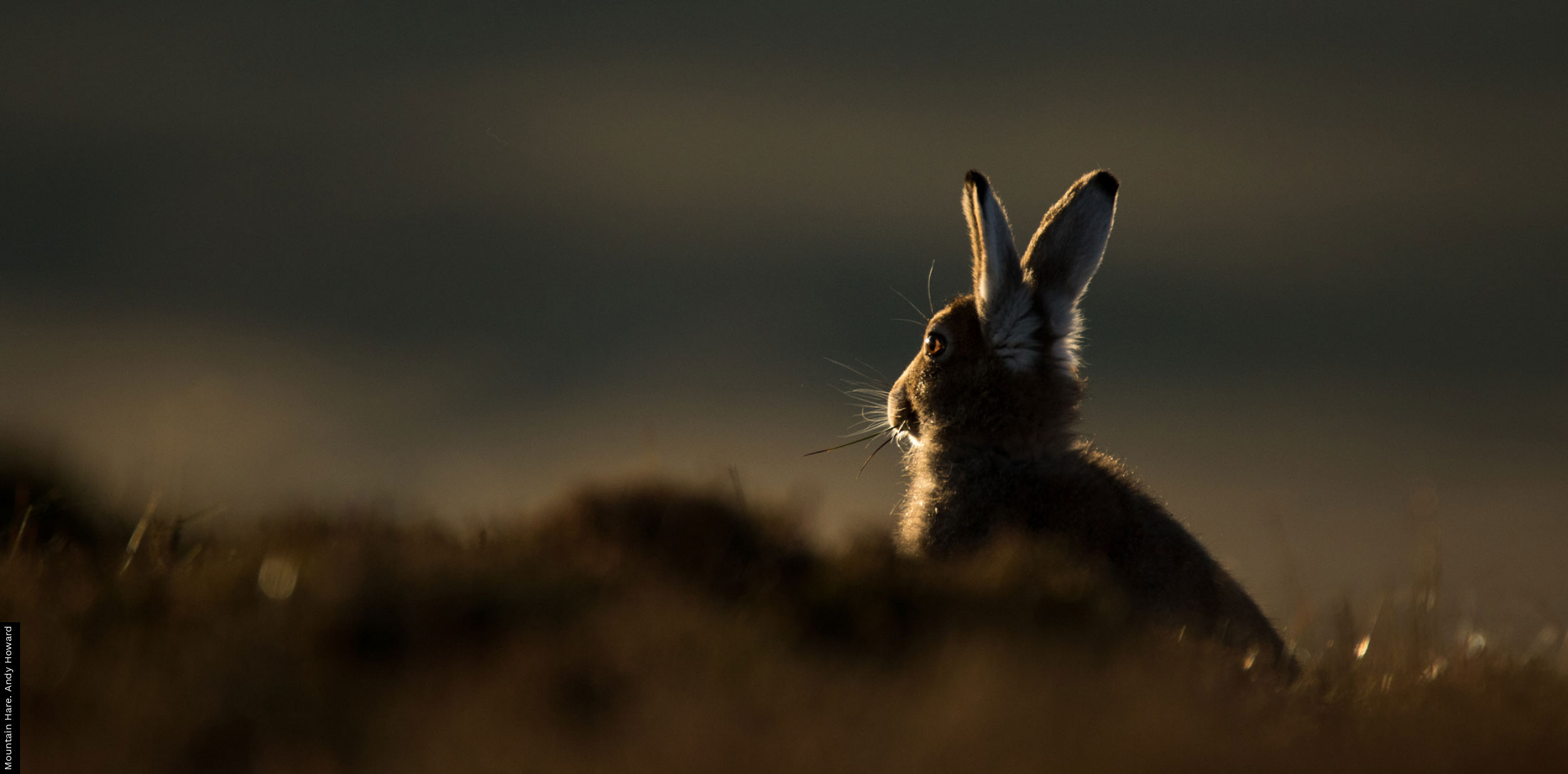Volunteer Mountain Hare Survey

This project aims to gather much-needed information about Mountain Hares in Scotland. Volunteers record hares and (optionally) upland birds via the Mammal Mapper app or with paper field recording sheets.
Do you spend time in the Scottish uplands? Can you help with a new project monitoring Mountain Hares?
It is easy to participate. All you need is a smartphone to record your sightings using the free Mammal Mapper app, or a pencil and clipboard to record your sightings on the field recording sheets.
By contributing to an improved understanding of abundance and distribution you’ll be helping to inform management and conservation strategies for this charismatic, near-threatened species.
Volunteers can undertake Rambling Surveys anywhere in Scotland, or can sign up to do Square Surveys of particular 1 km squares, adding further value.
Why Mountain Hares?
The Mountain Hare, Lepus timidus, is Britain's only native member of the hare and rabbit family. Within Britain, its native range is restricted to the Scottish uplands, though small populations are found elsewhere.
In recent years there have been growing concerns about the population of Mountain Hares, particularly in Scotland. The species faces a number of threats including reduced habitat due to changes in land use, uncertainty over the sustainability of control measures, and competition for resources with Brown Hares (Lepus europaeus). These issues, along with a lack of reliable data on their population status, are reflected in the species’ Near Threatened status in the Mammal Society’s IUCN-compliant Red List (2020). In view of this, since 1st March 2021 they have had full legal protection in Scotland.
Log your sightings
NatureScot (formerly Scottish Natural Heritage), the Mammal Society, the British Trust for Ornithology (BTO), and the Game & Wildlife Conservation Trust are collaborating on a project aiming to collect this vital information, but we need your help. We are asking you to help us to record Mountain Hares so that we can improve our understanding of this species.
You can turn any walk in Scotland into a Rambling Survey of Mountain Hares using the Mammal Mapper app or our paper recording sheets. While walking, just look out for and record any Mountain Hares that you come across. Because we also urgently need more information on many other upland species, you can also use the app to record other mammals and birds during your survey. Instructions on how to use the app are available in our YouTube tutorial.
Even if you don't think there are Mountain Hares in the area you plan to walk, recording 'zero data' is still very helpful. If you aren't sure if you can correctly identify Mountain Hares, the Mammal Mapper app provides help on how to distinguish these from potential confusion species (Brown Hares or Rabbits). If you spot two Mountain Hares in quick succession and think there is a reasonable chance it is the same individual, please just count it as one sighting to avoid double-counting.
The data will be collated and verified by BTO and the Mammal Society, and shared with the other partner organisations. It will contribute to a wider Mountain Hare monitoring scheme, helping update our understanding of the conservation status of Mountain Hares. The findings will be made publicly available.
Resources
Volunteer Mountain Hare Survey Instructions
Rambling Survey Recording Sheet
Special thanks to Andy Howard for permission to use his fantastic Mountain Hare images on these pages.
Time / skill required
Project timeline, contributions & findings
Project timeline
- 22/03/21 - Project launch







Share this page